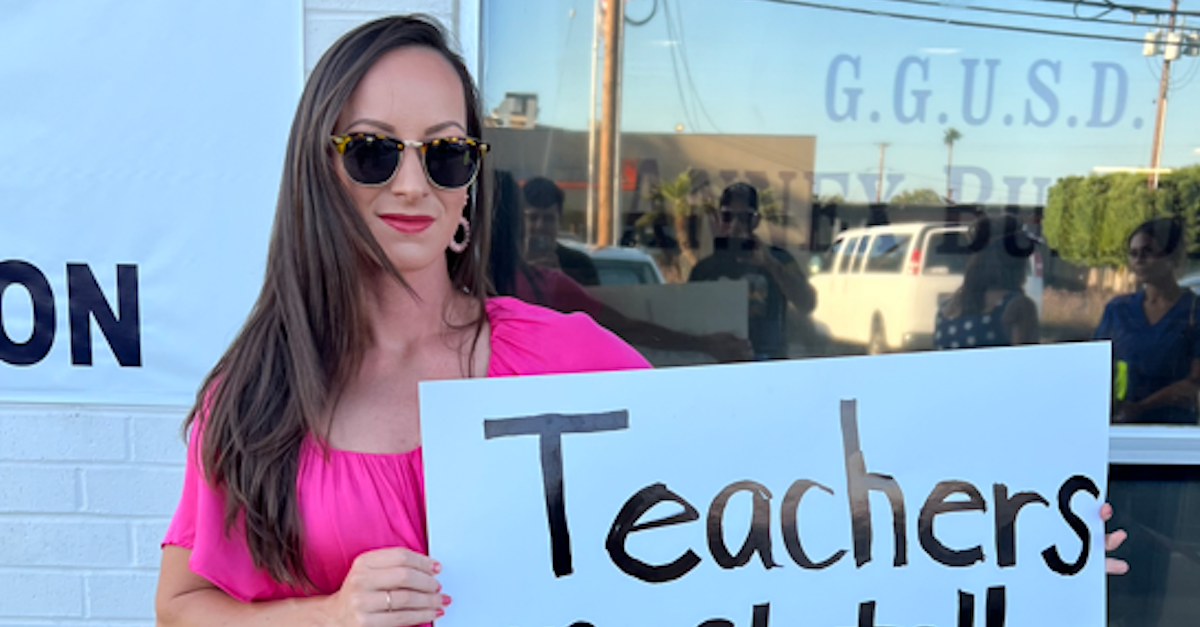
Women played an important role at the original Pentecost, which St Peter felt obliged to explain to the crowds. This is the story …
Joel’s prophecy
At Pentecost St Peter quoted the prophet Joel. The traditional Authorized (KJV) renders it as: “And it shall come to pass afterward, that I will pour out my spirit upon all flesh; and your sons and your daughters shall prophesy, your old men shall dream dreams, your young men shall see visions” (Joel 2:28 KJV). To understand this we need to understand the nature of Old Testament prophets and prophecy.
Prophets
Our English word ‘prophet’ comes from the Greek word ‘prophetes’ which meant to speak on behalf of another, so a prophet was a spokesperson, and in the religious context that is a spokesperson for God. Prophets were people (men or women) who were regarded as messengers, and sometimes assigned a special mission by God. They were believed to speak on behalf of God, and were both forth-telling and fore-telling.
The Books of Prophets
In the Bible there are books called the Major Prophets – Isaiah, Jeremiah and the Lamentations of Jeremiah, Ezekiel and Daniel. The term ‘major’ here is a reference to the length of the books rather than their significance. There are also 12 books known as the Minor Prophets being Hosea, Joel, Amos, Obadiah, Jonah, Micah, Nahum, Habakkuk, Zephaniah, Haggai, Zechariah and Malachi. Likewise, the term ‘minor’ is a reference to the comparatively shorter nature of the books rather than their significance.
There are prophecies of the coming Messiah in Isaiah and Micah, and prophecies of the future in Ezekiel, Daniel and Zechariah. However, these books are not packed with predictions of the future. Most prophecy was words relevant for the people of the day, reminding people of God’s will and encouraging people to reject idolatry and repent, what we might now call preaching.
The understanding was that a select few people (male or female) were inspired by God to preach on his behalf.
Female Prophets of the Old Covenant
In the Bible, most of the prophets were men. In a patriarchal society, perhaps this is to be expected, but there were female prophets too, sometimes called prophetesses. First we have Miriam, sister of Moses who is called a prophet (Exodus 15:20). The judges were the leaders of Israel before the monarchy, and the fourth Judge was Deborah, who was called both a judge and a prophet (Judges 4:4). The often-overlooked Huldah (2 Kings 22:14-20) was a female prophet who both King Josiah and the high priest deferred to, even in preference to other male prophets.
One of the first characters we meet in the New Testament is Anna (Luke 2:36-38) who is called a prophet, with the implication that she had been a prophet for many decades, putting her into the inter-testamental period. Anna and Simeon, and then John the Baptist are often considered the last prophets of the Old Covenant, before the start of Jesus’s ministry.
Joel’s Prophecy
When we come to Joel, there is a prophecy that one day with the coming of the Holy Spirit, both men and women will prophesy. The traditional Authorized Version renders it as: “And it shall come to pass afterward, that I will pour out my spirit upon all flesh; and your sons and your daughters shall prophesy, your old men shall dream dreams, your young men shall see visions” (Joel 2:28 KJV).
Almost all Bible translations into English keep the word ‘prophesy’. The problem with this is that it is a bit misleading, because In English the verb to prophesy and the word ‘prophesying’, are generally understood in common parlance to mean predicting or foretelling the future, but actually that was only what happened sometimes. The Good News Bible, perhaps trying to solve that problem, unpacks it as ‘your sons and daughters will proclaim my message’. The EasyEnglish Bible, translated for people who do not have English as their first language, unpacks it as ‘Your sons and daughters will speak my message to people’.
How do we understand what Joel wrote? It is not that people didn’t prophesy. Nor is it that women never prophesied, because the Old Testament does list female prophets. What Joel seems to be saying is that there will come a time when the Holy Spirit will be poured out and available for everyone, not just the select few, and then it will be more normal to hear ordinary men and women proclaiming his message. He seems to imply that when the Holy Spirit comes, God will make no distinction based on gender.
Pentecost
Skip forward to Pentecost, about AD 33, after the Ascension of Jesus (Acts 1:9), and Luke records in Acts that the eleven surviving apostles went back to Jerusalem and went to the Upper Room (Acts 1:12-13). They were joined by ‘the women and Mary mother of Jesus and his brothers’ (Acts 1:14). Gathered at Jerusalem was a group of 120 believers (Acts 1:15), which included women. These women are not all named but some are named elsewhere by Luke as ‘Mary called Magdalene, out of whom had come seven demons, and Joanna the wife of Chuza, Herod’s steward, and Susanna, and many others’ (Luke 8:2-3) and then later ‘Mary Magdalene, Joanna, Mary the mother of James; they and the other women…’ were at the empty tomb (Luke 24:10). Luke seems to make a point of mentioning the role of the women in the story. Those who are named, may simply be those who were active in the Early Church who Luke knew, and had interviewed for his account.
The Holy Spirit
Then in Acts 2:4 it says ‘All of them were filled with the Holy Spirit and began to speak in other tongues as the Spirit enabled them.’ So, those speaking in tongues included women as well as men. In this instance, these tongues were not some sort of charismatic ecstatic speech, but proper human languages, because the text records people understanding in their own languages (Acts 1:11). Hearing these men and women each proclaiming about God and speaking in different languages led the crowds to be amazed and puzzled (Acts 1:12). They were not used to seeing so many people preaching together. They were not used to people preaching that early in the day, and they were not used to seeing women preaching. Some people made fun of them and accused them of drinking too much (Acts 1:13).
Then Peter stood up and addressed the crowds and tried to explain what was happening (Acts 1:14) and addressed the issues which puzzled the crowd. First, he said that they were not drunk (Acts 1:15), and then he explained that it was a fulfilment of Joel’s prophecy (Acts 1:16). This makes little sense unless he was explaining why women were also speaking. The reference to Joel implies that both men and women are prophesying, and the context tells us that this prophesying was in the style of proclaiming and preaching, not in the style of predicting the future.
Prophecy in the Early Church
The idea of prophecy continued in the Early Church, and some are named. Barnabas, Simeon called Niger, Lucius the Cyrenian, Manaen (a close friend of Herod the tetrarch from childhood) and Saul are mentioned as prophets and teachers at Antioch in Acts 13:1. Judas and Silas are mentioned as prophets in Acts 15:32, and Agabus is mentioned as a prophet in Acts 21:10.
The role of prophet seems to be similar to the modern idea of a preacher. Prophets were fallible. In Peter’s second letter he writes about ‘prophecy of Scripture’ (2 Peter 1:20-21) which seems to be about preaching from the Scriptures (which was then what Christians call the Old Testament). St Paul wrote that when prophets spoke others should evaluate what is said (1 Corinthians 14:29), and they did not always get it right. St John and St Peter warned against false prophets in their letters (2 Peter 2:1 and 1 John 4:1).
Female Prophecy in the Early Church
We know that there were also women who were prophets in the Early Church, because later Luke notes that Philip the Evangelist had four daughters who prophesied (Acts 21:8-9). Then when St Paul writes to the Christians at Ephesus he says ‘Christ himself gave the apostles, the prophets, the evangelists, the pastors and teachers, to equip his people for works of service, so that the body of Christ may be built up’ (Ephesians 4:11 NIV).
The gender limitations on these roles were added later over the centuries by different church traditions, but are not here in the list. Rather, in his first letter to the church at Corinth when St Paul comments on the practice of women praying aloud and prophesying, his only concern was that their heads were uncovered (1 Corinthians 11:5). Thus, for many people, the first reference we have to women preaching in the Early Church is right there at the start at Pentecost and continued into the Early Church.
Pentecostals
The modern Pentecostal movement takes its name, and its cue from the story of Pentecost. The modern Pentecostal movement mainly dates back to the 1904-5 Revival in south Wales, which came out of the Welsh Calvinist Methodist movement. This led to many women and men becoming singers, evangelists, teachers and preachers. The story is told in a new book called “Carriers of the Fire – The Women of the Welsh Revival 1904/05” by Karen Lowe. Pentecostals often refer to Joel’s prophecy (Joel 2:28-29), which was quoted by St Peter at Pentecost (Acts 2:16-18), which makes little sense to quote unless it means women can also speak.
Aimee McPherson
In the USA, the Pentecostal movement is usually described as dating from the Asuza Street Revival in Los Angeles of 1908. This had taken its cue from the earlier one in south Wales, which had had visitors from Los Angeles.
Today, the largest Pentecostal denomination in the world is the Assemblies of God (AoG). AoG has been ordaining women to ministry since it started in 1914. This year 2024, is its centenary. One of the most famous female preachers of all time, Aimee Elizabeth Semple McPherson (1890-1944), was ordained as an evangelist by the Assemblies of God in 1919. Her church Angelus Temple in Los Angeles, built in 1923, was the first megachurch in the USA, and she pioneered radio evangelism. She also opened a food bank, a soup kitchen and distributed food, clothing and blankets, which are ministries which many churches still do today.
Pentecost in 2024 is on Sunday 19 May. Let’s not forget the women from the story who often get overlooked in retelling it.
https://platform.twitter.com/widgets.js
source https://thesecondadam.com/the-story-of-the-women-of-pentecost-8/



